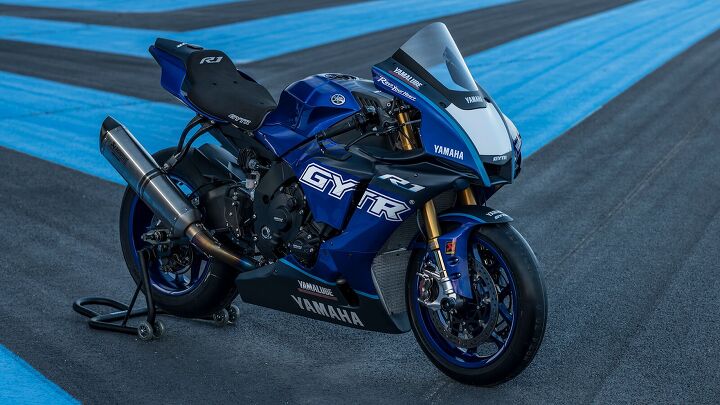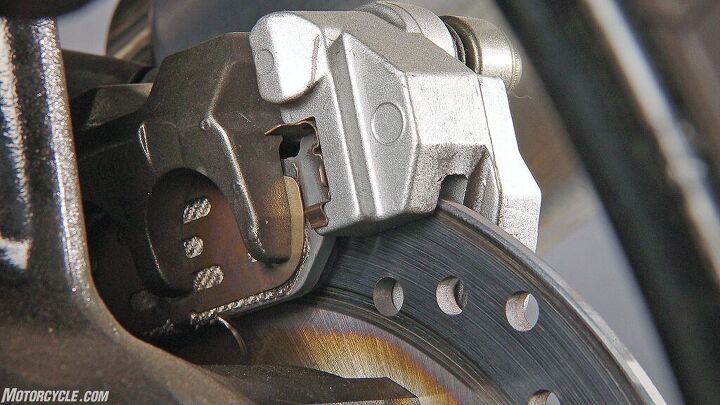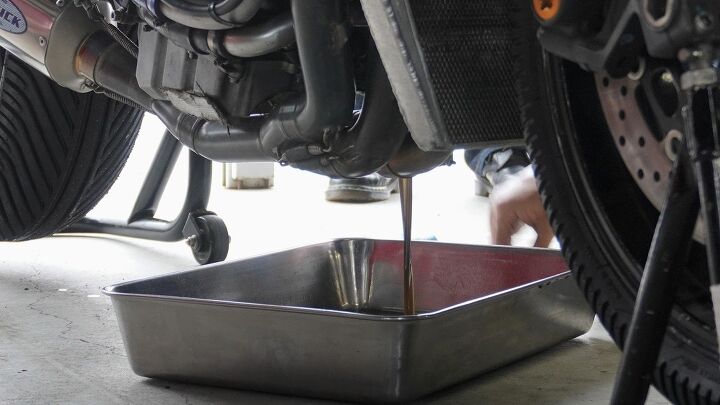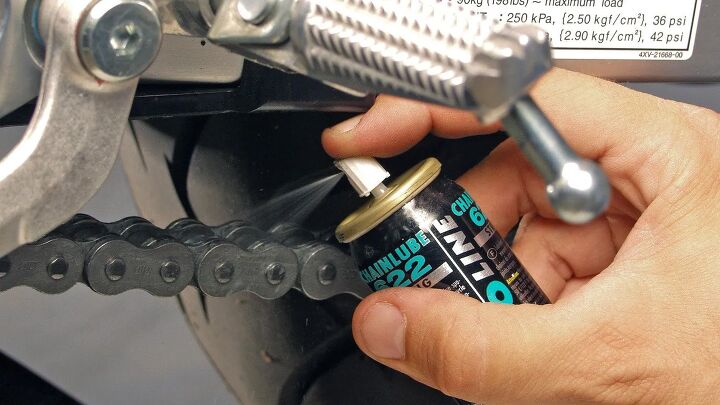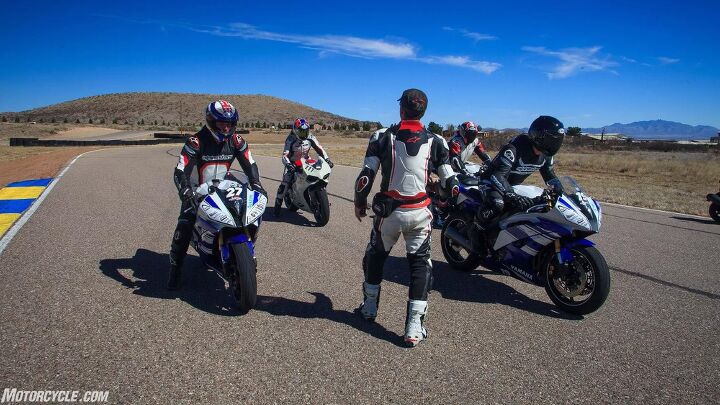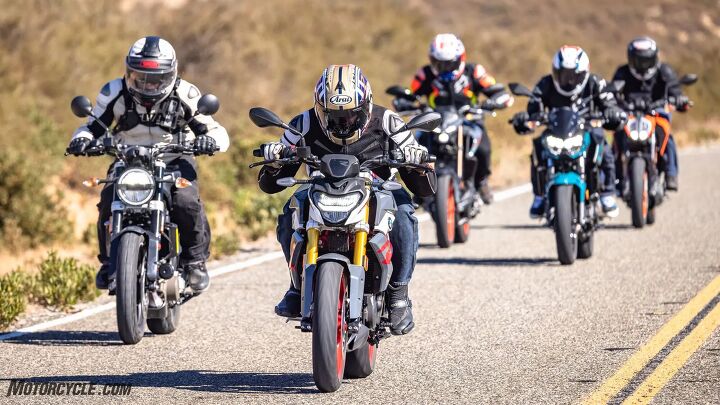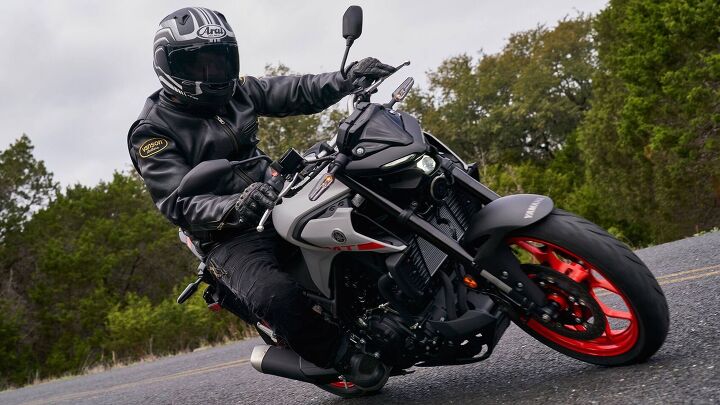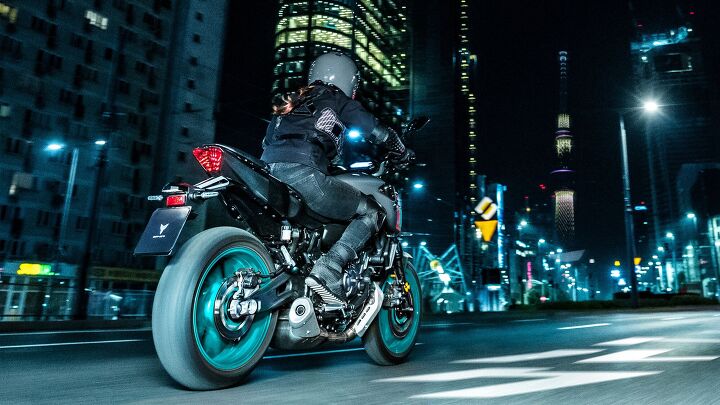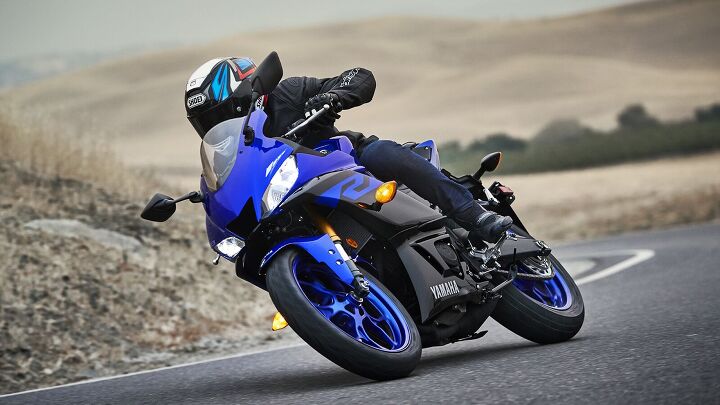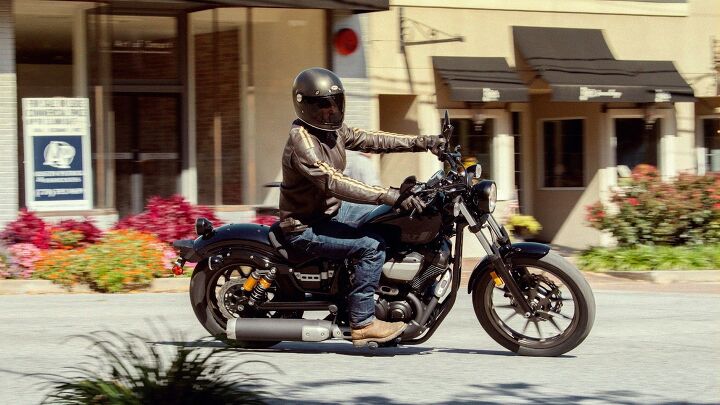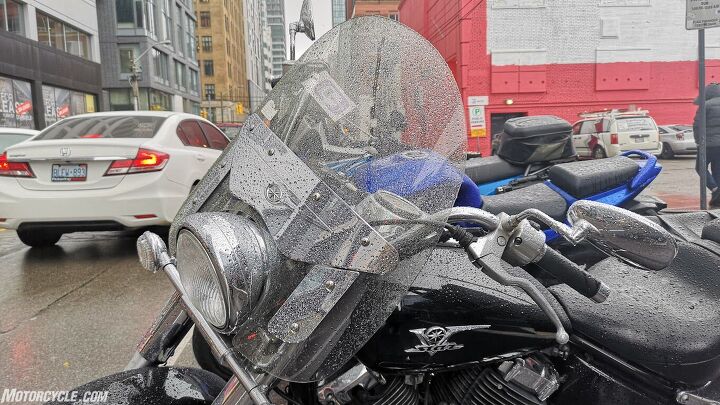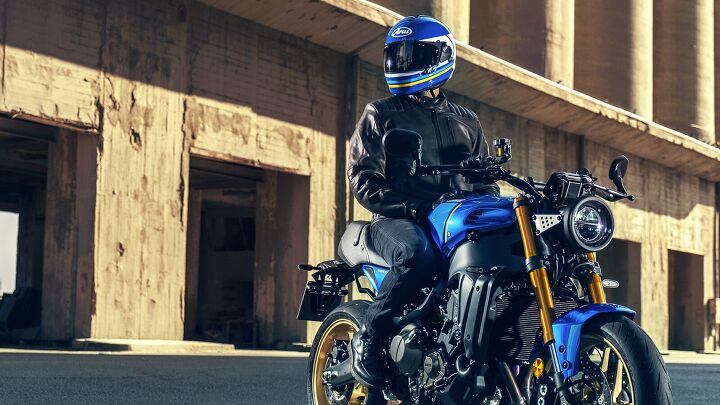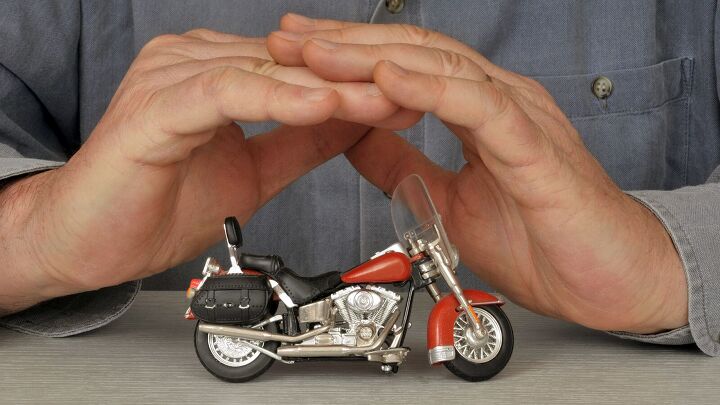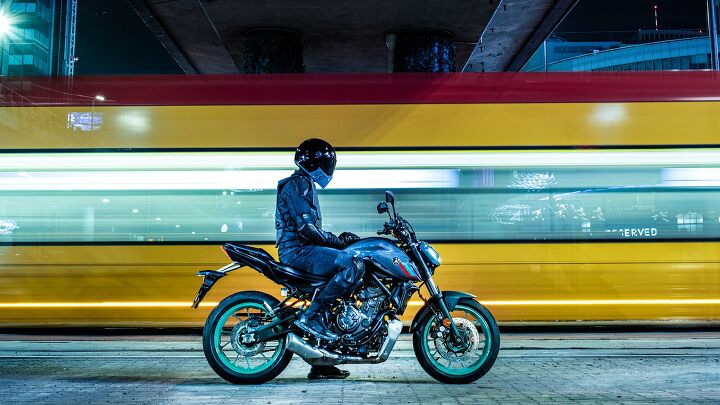#Sponsored
Accessorizing Your Motorcycle
Motorcycle.com is no fashion rag, but maybe the fashion maxim of “Accessorize, accessorize, accessorize!” has some merit here after all. That’s because changing the looks and capabilities of your bike can be just as important to a happy ride as is changing apparel for your work or social life. Just for instance, adding a taller or shorter seat tailors the bike to your proportions better, thereby improving ride comfort. Adding a windscreen, a USB adapter, and a tail bag turns it into a light tourer. Getting front and rear shop stands make cleaning and servicing the wheels way easier and more fun. And then, adding custom-style anodized parts adds a bit of bling that really stands out.
How and When to Swap Motorcycle Brake Pads
Checking the condition of your disc-brake pads should be a regular part of servicing your bike. For example, when you check tire pressures, oil level, or change the oil and filter, also check all brake pads for wear. Another opportunity to check them is when you’re washing, drying, and polishing your bike. Quite seriously, we’ve found loose and broken spokes, damaged tire tread, missing cotter pins and circlips, and other concerning factors simply because we had hands on the bike while cleaning it.
How to Change Your Own Oil
If you’re a new rider, among the most satisfying experiences you can have is servicing your bike. That’s because, frankly, motorcycling is like a relationship, and the more you know about and can well care for your machine, the fuller and deeper the experience will be. How’s that for philosophical? Anyway, there are practical reasons for changing your own oil, too: 1) It saves money because you’re contributing the labor for free; 2) You are learning about tools, bolts and seals, parts and assemblies, and how everything works; 3) You are growing your self-sufficiency, which is always a good thing out there in the physical world; and 4) It’s all to perform an essential job right, and it will inspire you to tackle other maintenance items later on. (And someday, maybe even adding bike accessories or doing an entire build?)
Basic Motorcycle Maintenance Tips
Everyone has probably heard of the famous book, Zen and the Art of Motorcycle Maintenance. But what’s that mean, exactly? To keep it simple, let’s forget the Zen part here, and just talk about the importance of maintenance. You’ll want to maintain your motorcycle properly because that way, you’ll get the most reliable and enjoyable riding experience, and more importantly, by keeping on top of maintenance, your bike will help take care of you, giving you a safer riding career. In all areas, your factory owner’s manual has precise guidance for what steps to take, what parts and tools are needed for your model, and when to do the work. But what if you’ve bought an older bike, say, that’s missing its manual? Let’s consider some fundamentals.
Beyond the Basics
Whether you’re just getting interested in riding, a newly licensed rider, an experienced one, or even a racer, you can always improve – both in skills and safety. That the mission and role of the Yamaha Champions Riding School (YCRS), or ChampSchool for short. Led by racing and coaching veteran (and incredibly nice guy) Nick Ienatsch, the school literally has something for everyone, no matter your location or experience level.
Riding in a Group
What was that classic grandparents’ advice, “Pick your friends wisely?” The same goes for riding in a group. Imagine, if you will, the last lap of the Daytona 500 with the entire field packed together at nearly 200 mph. Or the peloton rushing along some winding backroad in the Tour de France. One wrong move and it’s mayhem for everyone. These are extreme examples of chain reactions in a pack of moving vehicles, but to some extent, that is the risk for motorcyclists riding in a group. And it’s exactly why you should, as the grandparents warned, pick your riding partners wisely.
How to: Motorcycle Braking
When you’re first learning to ride, coordinating a motorcycle’s throttle, clutch, shifter, front brake, and rear brake can seem like a confounding task – and especially doing so smoothly. Fortunately, though, if you’re already a bicycle rider, the clutch and front brake levers will seem natural enough. (Until, of course, you notice that a bicycle’s front brake lever is on the left and the front brake lever on a motorcycle is on the right…but that’s a mystery we shall not address here.) Instead, let’s just discuss brakes and braking.
City Riding for New Riders
Apart from a racetrack or a rocky, off-camber clifftop trail, there may be no more demanding riding conditions than are found in a congested city. Cars, trucks, motorcycles, and (ever more frequently now) electric bicycles surround you, traffic controls including lights and signs control you, and multiple lanes (including left and right turn lanes), plus alleys and driveways demand choices. It’s basically like a Super Mario game, with you in the middle.
Proper Cornering Technique
Want to see some feathers fly? Sit down with a bunch of biker friends and ask their opinion of proper cornering technique. That fox-in-the-henhouse moment will probably jumpstart a flurry of opinions – some well-considered theory, others emphatically proven by deeds on the racetrack, and others downright dorky. Here are some cornering technique suggestions for learning riders.
Survival Skills for New Riders
Aboard their motorcycles, new riders face a brave new world. Not literally, of course. But from the standpoint of learning fresh physical skills, powers of observation, actions and reactions, and embedding vital strategies for survival, it certainly is. If this is you, first and foremost locate, attend, and successfully complete a Motorcycle Safety Foundation (MSF) course in your area. Then prepare for and pass the written and riding tests, as required by your state’s department of motor vehicles (DMV).
Guide to Motorcycle Rain Gear
Stifling heat in Death Valley. Biting cold in Michigan winters. Hail and snow in the Mojave. Flattening winds in the Texas panhandle. You name it, we’ve ridden through it. Oh yes, include in the list a drenching cyclone in New Zealand. In that one, veritable buckets of rain per minute descended on our group like heaven’s own turbocharged water wastegate, driving us into the nearest general store, looking for new gear to wear. (All we found were wool mittens.)
Choosing the Right Motorcycle Helmet
For motorcyclists, helmets can range in importance from their most essential piece of riding kit to a mere afterthought. The drivers for this may be complex, but our guess is that the more serious you are about riding, the more serious you are about helmets. And conversely, if you treat riding lightly (perhaps as only a secondary activity), a helmet may register as no more important than a backpack, sunglasses, or shoes.
What Gear Does a New Rider Need?
Hey! Interested in opening a big can of worms? Just ask a group of riders what kind of gear they wear, and then for good measure, what kind of gear they would or should wear if they were going to “do it right.” It’s likely that the responses will have some commonalities – and some differences too. We’re here to say that this is normal because riders are individuals; they evaluate comfort and risk uniquely, and they all draw from their own unique experiences in making their judgments.
What Do I Need to Know About Motorcycle Insurance?
Like bills, deadlines, and taxes in everyday life, motorcycle insurance is something you’ve got to buy and maintain if you want to ride on the street. It’s a hugely complex business based on mathematical models, profit and loss projections, shifting markets and motorcycle types, rider ages, and other fun stuff. If you’re just starting to ride, here’s some of what you may need to know.
Which Type of Motorcycle is Right for You?
Ah, the good old days. Back when the Watergate scandal was a big deal, so was motorcycling. The industry had exploded in size and scope to historic levels, thanks to the coming of age for Boomers and America’s appetite for outdoor experiences. And yet…in terms of bike choices, you could only buy a standard bike like a Yamaha XS650, a motocross bike like a Penton 125 Six-Day, an “enduro” (on/off road) bike like Yamaha’s DT3 2-stroke, an Italian scooter, or maybe a big hog straight outta Milwaukee. Needed more from your mount? From there, you really did have to bend brackets and turn wrenches to “make it your own,” as current bike advertisers love to say.



